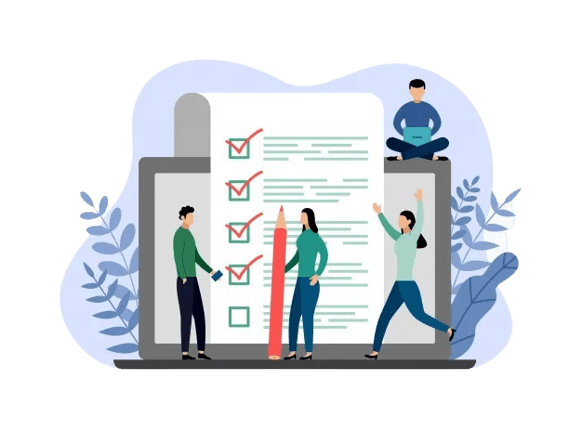Swallowing OCD Assessment
3 Min Free Swallowing OCD Assessment
Who Can Benefit From This Swallowing OCD Assessment?
This swallowing OCD assessment can benefit individuals who suspect they may be experiencing obsessive-compulsive disorder (OCD) symptoms specifically related to swallowing.
It is designed to help individuals assess the frequency and impact of their swallowing-related obsessions and compulsions. This assessment can be useful for those who feel anxious, distressed, or impaired by their concerns about swallowing and wish to gain a better understanding of their symptoms.
It is important to consult with a qualified healthcare professional for an accurate diagnosis and appropriate treatment.

Swallowing OCD Assessment Accuracy

The accuracy of a swallowing OCD assessment depends on several factors. While a well-designed assessment can provide valuable insights, it is important to note that self-assessments cannot replace a formal diagnosis by a qualified healthcare professional.
A professional evaluation involves a comprehensive assessment of symptoms, medical history, and potentially diagnostic tools. The accuracy of an assessment also relies on the individual’s ability to provide honest and accurate responses.
Self-assessments can serve as a starting point for discussion with a healthcare provider but should not be solely relied upon for diagnosis or treatment decisions.
Types of Swallowing OCD Assessment
Frequency assessment
Evaluating how often obsessive thoughts and compulsions related to swallowing occur.
Severity assessment
Determining the intensity or severity of distress or impairment caused by swallowing-related obsessions and compulsions.
Behavioral assessment
Assessing specific behaviors and rituals related to swallowing, such as excessive chewing or regurgitation.
Anxiety assessment
Measuring the level of anxiety or fear experienced when attempting to swallow food or liquids
Avoidance assessment
Examining the extent to which an individual avoids certain foods or textures due to swallowing-related concerns.
Time assessment
Quantifying the amount of time spent thinking about or engaging in rituals related to swallowing on a daily basis.
Handling Swallowing OCD
Handling swallowing OCD involves a comprehensive approach that combines therapy, self-help strategies, and, in some cases, medication. Here are some strategies that can be helpful:
- Cognitive-behavioral therapy (CBT): Seek professional help from a therapist experienced in treating OCD. CBT can involve exposure and response prevention (ERP), which gradually exposes you to feared situations while refraining from engaging in rituals, helping to reduce anxiety over time.
- Medication: Consult a psychiatrist who may prescribe selective serotonin reuptake inhibitors (SSRIs), which can be effective in reducing OCD symptoms.
- Relaxation techniques: Practice relaxation techniques such as deep breathing, meditation, or mindfulness to manage anxiety and stress associated with swallowing concerns.
- Support system: Engage with a support system of friends, family, or support groups who can provide understanding, encouragement, and practical assistance.
- Education and self-help: Learn more about OCD and swallowing-related concerns. Books, online resources, and support groups can provide valuable information and coping strategies.
- Gradual exposure: Work with a therapist to gradually expose yourself to feared swallowing situations, starting with less anxiety-provoking situations and gradually progressing to more challenging ones.
- Lifestyle changes: Adopt a healthy lifestyle with regular exercise, sufficient sleep, and a balanced diet to support overall well-being and minimize triggers for OCD symptoms.
Remember, everyone’s journey is unique, and it’s important to work with a professional to develop an individualized treatment plan that suits your specific needs.

